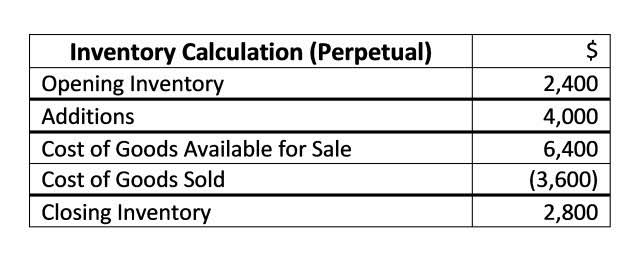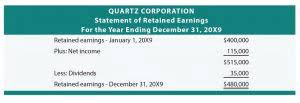
If the dishonest employee has access to the system, this may be as easy as using the ‘Add Employee’ function in the payroll program bypassing any controls in place. If the fraudster does not have access to system, they may need to forge the necessary documents and authorizations to add an employee. In large businesses with a high staff turnover, the forged documents may not be noticed amongst the real documents, or there may be little or no checks performed on the information submitted. Commonly, the dishonest employee is the person that authorizes https://www.bookstime.com/articles/bookkeeping-las-vegas the payroll payments or has control over adding and deleting employees from the payroll register. Who can manipulate these processes will depend on the system in place and the number of people involved in the payroll process.
- Payroll fraud can result in criminal charges, including theft, wire fraud, and tax evasion.
- Logins and account changes can be monitored to look for instances where fraudsters may be attempting to divert payments in a payroll system.
- We streamline the process, ensuring locally competitive benefits and perks, and enabling expansion into new talent markets.
- Payroll fraud is when there is a theft of funds from a business via the payroll processing system.
- If the ghost is paid a wage or remuneration calculated on hours worked or the type of work done, the employee may need to forge that information to generate the payment.
- This type of payroll fraud is particularly prevalent in larger organizations where payroll oversight might be less stringent.
Top 6 most common Payroll Fraud at the Workplace
- Check for duplicate bank account details or multiple payments made to the same account.
- Additionally, the reputational damage that arises from such practices can erode trust among clients, employees, and the public, potentially leading to long-term consequences for the business.
- Remember, there are several types of payroll fraud, and it is essential to regularly review your company’s payroll and accounting records for discrepancies.
- We can answer any questions you have about those rules or any aspect of payroll fraud prevention.
- The culprit may create a fictitious employee or continue to pay a staff member who no longer works for the organization.
Identifying patterns that deviate from the norm can help highlight areas where fraud might be taking place, like excessive overtime claims or suspicious salary changes. Any adjustments should have supporting documentation and approval, so it’s important to investigate any discrepancies that don’t match company policies or job performance. They reduce administrative burdens, achieve greater payroll accuracy, and streamline operations, all of which drive their ongoing success and growth. If you are an at-will employee and your employer tricks you into resigning or quitting, you do not have a claim. Screening employees carefully upfront can help reduce the likelihood of fraud later on.
- One person might be handling payroll, bookkeeping, and employee onboarding—creating the perfect storm for mistakes or manipulation.
- Payroll fraud can have severe consequences for an organization, including financial losses, legal action, damage to the company’s reputation, and even bankruptcy in extreme cases.
- Creating a fake employee in the payroll records, or prolonging the pay of an employee who has left the company.
- Payroll fraud occurs when an individual illicitly changes the company’s payroll system to manipulate the calculation of employee compensation to their own benefit.
- Using payroll software can help reduce the chance of human error, as calculations are done accurately, and taxes and deductions are automatically calculated.
Common Types of Payroll Fraud
A lack of deductions fraud occurs when an employer incorrectly calculates payroll taxes or fails to deduct employee contributions, resulting in the improper payment of funds. Employees with access to the payroll system can also alter their payroll information to avoid taxes or other mandatory deductions, leaving the employer responsible for the costs. This type of fraud is more common in companies with a per diem allowance policy, as it can be hard to track and verify every expense claim.
Conduct background checks

Furthermore, detecting payroll fraud early on through detailed unearned revenue reviews and monitoring is essential to keeping your business safe. Having ghost employees is one approach for an employer to perpetrate payroll fraud. The payroll staff will either establish a fictitious employee or keep a terminated employee active in the payroll records.

Outsource payroll processing

Blacktop Ltd. and Eurovia BC Inc. involved a payroll administrator who diverted almost $2 million by altering employees’ banking details and issuing unauthorized payments to herself. Over two years, she exploited her access to modify direct deposit information, rerouting salaries to accounts she controlled. Common tactics include inventing fictitious sales or altering commission rates. In “invention of sales” schemes, retail workers manipulate point-of-sale systems to record fake transactions and earn fraudulent commissions. In an executive example, a sales director might inflate quarterly deals to claim higher bonuses.
Common indicators of payroll fraud include:
These are some of the warning signs that must be acted upon immediately. Remember, there are several types of payroll fraud, and it is essential to regularly review your company’s payroll and accounting records for discrepancies. While these are some of the most common payroll frauds, there can be other types of employer payroll frauds depending on your organization’s business model and payroll system. The only way to be secured against such fraud is to know how to detect them.


While employees may submit inflated timesheets, the ACFE report noted that executive or upper management positions were responsible for 16% of payroll fraud occurrences. Such companies must be protected against payroll fraud schemes because payroll frauds are two times more likely to happen at small and medium-sized companies than at larger organizations. It can take multiple routes, from misclassifying employees to using ghost employees. Payroll fraud is a type of fraud that involves manipulating the payroll system for financial gain. It can be intentional or unintentional, employer payroll frauds but it always involves someone taking advantage of the system to gain some form of economic benefit.
Expense Reimbursement Fraud
From tightening internal controls to working with trusted PEO partners, the key is to stay proactive. Isolate the payroll data, check approvals, and involve HR/legal early. Payroll fraud can result in criminal charges, including theft, wire fraud, and tax evasion. Sometimes employees request advances and never repay them, or they get paid twice due to system errors they don’t report.
